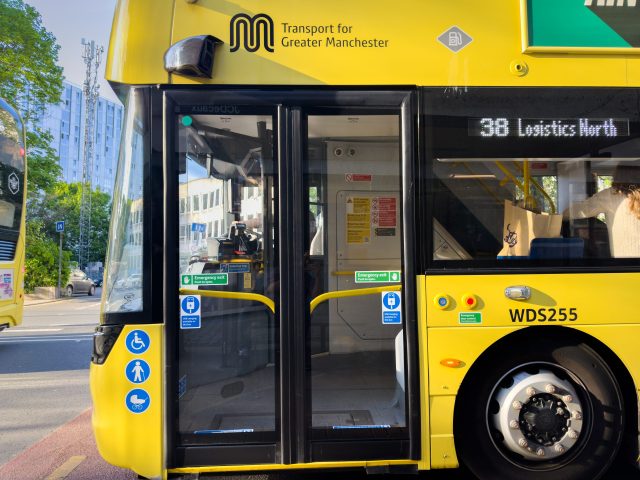Young people face ‘troubling’ challenges to social mobility, Commission reveals
Social Mobility Commission report examines young people’s mental health, truancy, use of alcohol and drugs and the support they receive in the home.
The challenges facing young people from all backgrounds have been laid bare in a report published by the Social Mobility Commission today.
Childhood Origins of Social Mobility explores the factors thought to affect young people’s life chances across socio-economic groups. It examines young people’s wellbeing and mental health and the differences in how they access activities, resources, educational support and relationships.
The report reveals a potential crisis in adolescent mental health, with young people from lower socio-economic backgrounds more likely to have feelings of anxiety, low confidence and low self esteem than those from higher socio-economic backgrounds.
According to the most recent data, around 40% of lower working class girls, aged 11-15, said they feel nervous and lose confidence in new situations compared to 31% of girls in the higher professional group.
Similarly, 29% of boys in the lower working class group reported the same lack of confidence and nervousness, almost double the percentage of their peers in the higher professional group (15%).
Young people’s experiences of truancy, smoking cigarettes, drinking alcohol, trying illegal drugs, and vaping – factors associated with children doing less well at school – were also explored.
The Social Mobility Commission’s previous report, showed that truancy rates were higher in the lower socio-economic group. But more recent data from 2021, found there is little difference in truancy rates between social groups, and is reported as 19% among poorer groups, but 18% among wealthier families.
Children aged 11-15, from more advantaged families, were found to be more likely to use alcohol, drugs and vape. 32% of young people from better off families self-reported consuming alcohol in the last month compared to 19% from poorer families.
A similar trend is shown when looking at young people’s experiences of drug use with 23% of those from more wealthier families having taken drugs in the past month compared to 17% of those from less well off families.
Rob Wilson, Deputy Chair of the Social Mobility Commission said:
“We are witnessing a deeply troubling crisis in young people’s mental health that could impact the life chances of future generations for years to come.
“Young people from all social groups face challenges, but our report shows that it is often those from the poorest families who face the greatest difficulties.”
How children are supported by their parents with learning in the home is also explored in the report.
It finds that parents from lower socio-economic groups are often more likely to support their children’s learning on a daily basis in certain areas, such as music, writing and helping with maths homework. The report shares how 26% of lower-working-class parents help with writing every day compared to 21% of parents in the higher professional class.
But there can also be differences in the approach to activities within lower socio-economic groups, with some parents reporting daily story-telling and musical activities, and others saying they never do those activities with their children.
Engaging in cultural activities is linked to doing well in school, and future professional success. The report finds that when it comes to taking part in cultural activities, parents across all socio-economic groups typically undertake the same kinds of pursuits.
According to the study, parents favoured going to the cinema as their top activity, with 67% of higher professional parents vs 43% of lower working class parents going to the movies in 2022-2023.
However, it also found that working class families typically take part in activities less often than other groups. Poor health was found to be a key barrier to participation among those in the lower class (15%) but not for those in the higher professional class (1%).
— ENDS —
About the commission
The Social Mobility Commission is an advisory, non-departmental public body established under the Life Chances Act 2010 as modified by the Welfare Reform and Work Act 2016. It has a duty to assess progress in improving social mobility in the United Kingdom and to promote social mobility in England.
It comprises:
Commission Chair
Alun Francis, Chief Executive of Blackpool & The Fylde College
Deputy Chairs
Resham Kotecha, Head of Policy at the Open Data Institute.
Rob Wilson, Chairman at WheelPower – British Wheelchair Sport.
Commissioners
Dr Raghib Ali, Senior Clinical Research Associate at the MRC Epidemiology Unit at the University of Cambridge.
Ryan Henson, Chief Executive Officer at the Coalition for Global Prosperity.
Parminder Kohli, Chair Shell UK Ltd and Shell Group Executive Vice President Sustainability and Carbon.
The Rt Hon Baroness Tina Stowell of Beeston MBE.
Media Contacts
- Daria Neklesa: neklesa@socialmobilitycommission.gov.uk 07885 406413
- Jill Sherman: sherman@socialmobilitycommission.gov.uk 07384 870965
Related content

Who shapes the future? Women, Tech and AI
Right now only 1 in 4 tech workers are women and just 9% are from a low socio-economic background. What does it mean when the sector shaping the future doesn’t… read more
Topics

Who shapes the future? Women, Tech and AI – New Podcast Episode
Right now only 1 in 4 tech workers are women and just 9% are from a low socio-economic background. What does it mean when the sector shaping the future doesn’t… read more
Topics

Local insight & devolved decision-making hold the key to solving Britain’s social mobility problem
New report from The Social Mobility Commission (SMC) highlights the potential impact of a place-based approach to social mobility; empowering local governments with decisions that affect their communities From transport to… read more